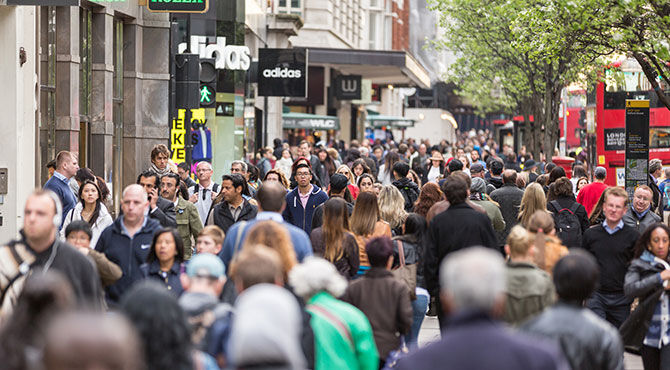UK inflation rate sticks at three per cent
Inflation rates defied expectation in January by maintaining the three per cent rate from the previous month. However, the government continues to expect rates to drop this year.

 13 February 2018
13 February 2018Inflation rates remain unmoved
Figures from the Office for National Statistics (ONS) showed the Consumer Price Index (CPI) had remained at December’s level last month with weaker price rises for fuel and food being offset by increases in leisure prices.Analysts had been expecting the CPI to drop to 2.9 per cent last month, signalling the start of a year-long decrease towards the target figure of two per cent.James Tucker, senior ONS statistician, said, “Headline inflation was unchanged with petrol prices rising by less than this time last year. However, the cost of entry to attractions such as zoos and gardens fell more slowly.“Factory goods price inflation continued to slow, with food prices falling in January, the growth in the cost of raw materials also slowed, with the prices of some imported materials falling.“House price growth increased slightly, driven by rises in Scotland and the South West. By contrast, annual house price growth in London was the lowest of any region in the UK for the third consecutive month.”
Related stories:
- Solving the productivity puzzle in the UK
- On the horizon for UK business leaders
- Bank of England flags up future rises in interest rates
Inflation still expected to fall
For the government, Mel Stride, Financial Secretary to the Treasury, commented, “The good news is that inflation is expected to fall this year. We are helping cut costs for hard pressed families by boosting pay, cutting taxes for millions of people and freezing fuel duty at the pumps.” Samuel Tombs, chief UK economist at Pantheon Macroeconomics, said that CPI inflation still looked set to fall sharply this year, as the anniversaries of sharp sterling-related rises in core goods, food and energy prices were met. “The fall back in oil prices to $63, from $70 in mid-January, also has brightened the near-term outlook,” he added, giving the Bank of England “more scope than it currently envisages to delay the next rate hike”.Interest rates brought back into question
Ben Brettell, senior economist at Hargreaves Lansdown, said the latest inflation rate added further weight to the case for interest rates to be increased sooner rather than later.“Indeed, Bank of England policymakers said last week they’ll try and bring inflation back to target more quickly than previously expected, which means rates could rise faster and further than anticipated,” he said.Chris Williamson, chief economist at Markit, agreed to an extent. “UK inflation came in higher than expected in January, adding further pressure for policymakers to hike interest rates again, possibly as soon as May,” he said. “However, with mounting signs of economic growth slowing at the start of 2018, a May rate rise is by no means a done deal and will likely be dependent on the data flow improving in coming months.”Earnings expected to continue to suffer
John Hawksworth, chief economist at PwC, said he feared that the squeeze on wages – currently increasing at an annual rate of 2.4 per cent – would continue for most of this year.“Inflation remained stuck at three per cent in January, still well above earnings growth,” he said. “We do expect inflation to fall back gradually over the course of the year, but this will be a slow process given that global commodity prices have generally been on an upward trend in recent months.“The squeeze on real earnings may therefore persist until late in 2018, which will continue to dampen consumer spending growth this year.”Stephen Clarke, senior economic analyst at the Resolution Foundation, said that inflation was increasingly becoming an home-grown problem, rather than one that could simply being blamed on higher import costs because of the fall in sterling’s value.“While the price of oil is something to watch in future as it pushes up input prices for UK manufacturers, the effect of the post-Brexit pound devaluation is waning slightly with items that are less import-intensive driving the recent rise in inflation,” he said.
For related news and features, visit our Enterprise section. Look out for the launch of 2018’s Relocate Awards, entry is now open. Relocate’s new Global Mobility Toolkit provides free information, practical advice and support for HR, global mobility managers and global teams operating overseas.
 Access hundreds of global services and suppliers in our Online Directory
Access hundreds of global services and suppliers in our Online Directory
©2026 Re:locate magazine, published by Profile Locations, Spray Hill, Hastings Road, Lamberhurst, Kent TN3 8JB. All rights reserved. This publication (or any part thereof) may not be reproduced in any form without the prior written permission of Profile Locations. Profile Locations accepts no liability for the accuracy of the contents or any opinions expressed herein.






























